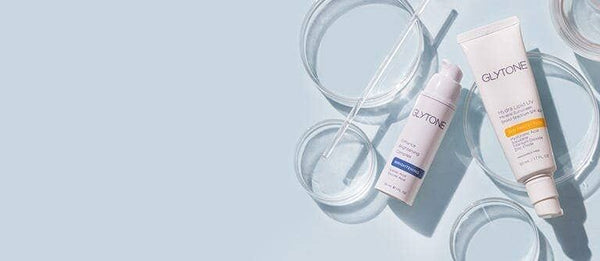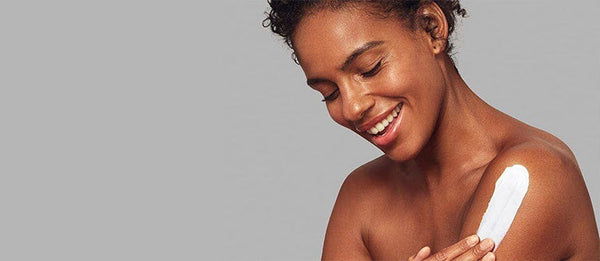Why You'll Want to Add Glycolic Acid to Your Body Routine
Skin tone and texture vary throughout the body. There are inherent differences between the skin on the face and the body. The skin on the body is thicker than the face and has a larger fat layer making it less delicate than the face. The skin cells are larger on the body, making it a more robust barrier and less likely to experience skin sensitivity. However, the skin cell turnover time is slower in the body rendering it more susceptible to dullness and dryness.
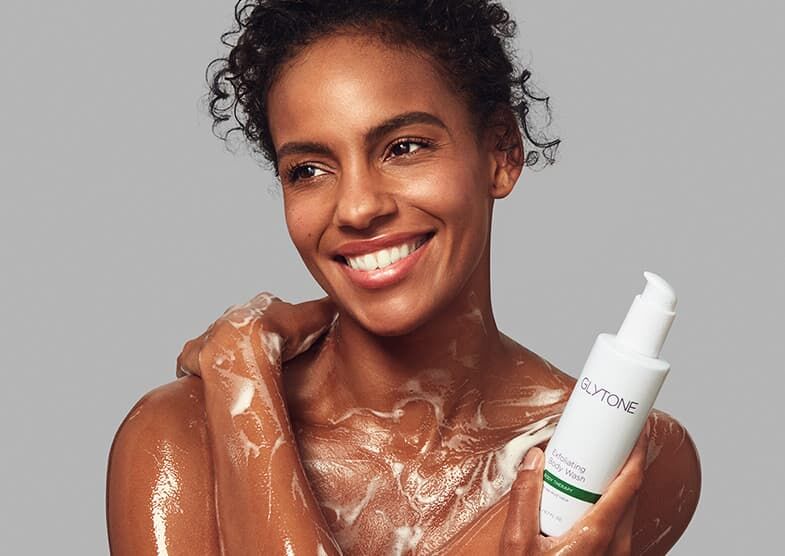
Why Exfoliating The Body Is Essential:
- Removes dead skin cells to give you smoother, more radiant skin.
- Increases epidermal thickness, reversing skin thinning that occurs over time.
- Promotes collagen production to improve fine lines and wrinkles.
- Removes dirt and debris to prevent clogging of pores which will reduce acne formation.
- Improves skin discoloration and hyperpigmentation.
- Improves circulation and lymphatic drainage.
- Higher efficacy of products and their benefits.
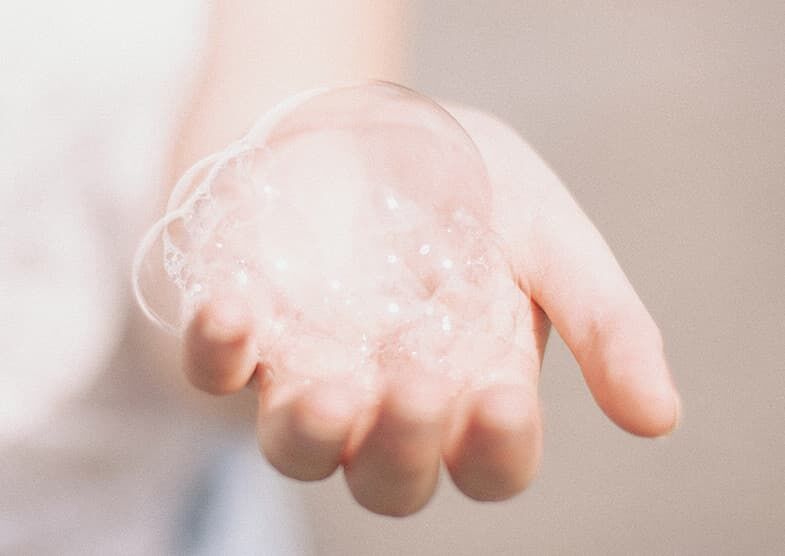
A Step-By-Step Guide To What The Body Needs
Following these steps in your daily body care routine is critical. Consistency will get your skin the best results. If you do not consistently layer the products in this order, you will not get the maximum benefits of your products.
Here are the steps to follow:
1. Exfoliate
2. Hydrate
3. Protect
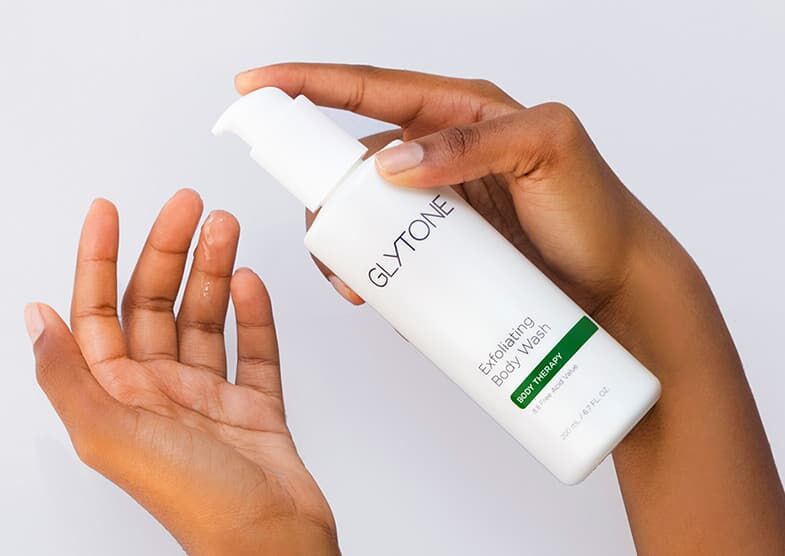
Step 1 - Exfoliate
Exfoliate to remove dirt, oil, debris and dead skin cells to enhance penetration of the products applied next. Chemical exfoliators, such as Glycolic Acid, are safer and better than physical exfoliators. Glycolic Acid is the smallest AHA, so it penetrates to:
- Break down the bond between dead skin cells to reveal smooth, radiant skin.
- Stimulate collagen production to help eliminate wrinkles.
- Help remove dark skin spots by exfoliating dead skin cells and inhibiting pigment production.
- Pull in water from the atmosphere to plump the skin and give it a more youthful appearance.
- Unclog pores to prevent acne breakouts.
- At high concentrations, Glycolic Acid helps prevent UV damage and reverses the classic signs of sun damage.
Exfoliating Body Wash is an AHA body wash that gently cleanses and exfoliates the skin. This Glycolic Acid body wash can safely be used daily, making the skin smooth and radiant.
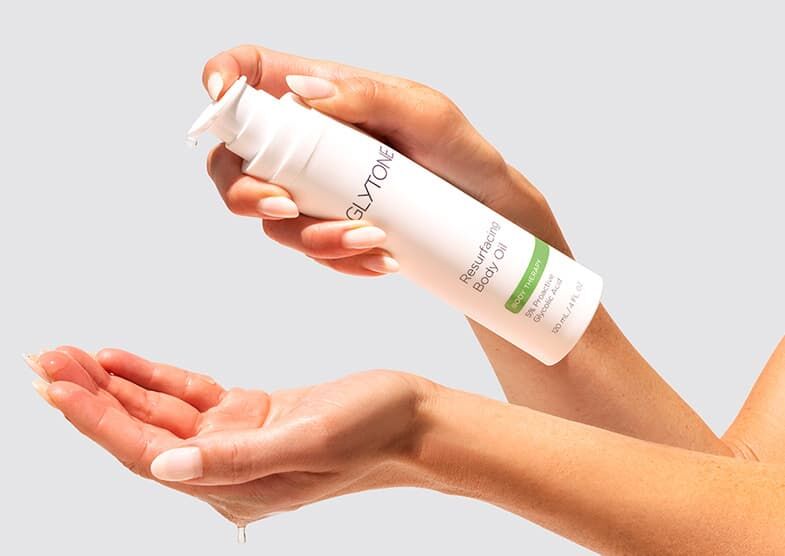
Step 2 - Hydrate
Once you exfoliate, you need to hydrate and lock in that moisture. Exfoliating also removes the skin's natural oils, so they must be replenished.
Exfoliating Body Lotion is a Glycolic Acid-infused body lotion that exfoliates and hydrates, combining the first two steps in your routine. Exfoliating Body Lotion also soothes the skin with allantoin to prevent irritation.
Resurfacing Body Oil is the first Glycolic Acid in oil body oil. In addition to hydrating the skin with Agave Tequilana Leaf Extract and Papaya Fruit Extract, this dry oil contains anti-inflammatory properties to calm and soothe the skin to prevent irritation and redness. Formulated with 5% Proactive Glycolic Acid, giving skin the benefits of AHA with decreased irritation and increased penetration.
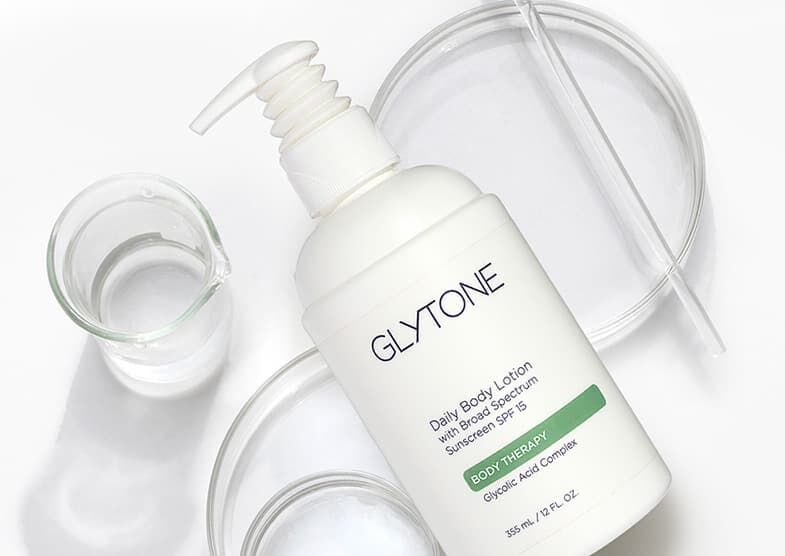
Step 3 - Protect
Sun protection is necessary for everyone, but especially for those using AHAs, which remove the skin's outer protective layer. For this reason, you need to apply sunscreen to protect the new skin from DNA damage that will cause skin cancers and damage to collagen and elastin that will cause wrinkles and sagging skin.
Daily Body Lotion Broad Spectrum SPF 15 combines all three steps into one convenient lotion. This exfoliating body lotion combines Glycolic Acid with Shea Butter to hydrate and soothe the skin, and sunscreen to protect your skin from the sun's harmful UV rays. In addition, it contains the antioxidant Vitamin E to protect the skin from free radical damage from the sun that can destroy collagen and elastin, which causes wrinkles and sagging skin. It gives broad-spectrum coverage to protect skin against UVA and UVB rays. These rays cause skin cancers to form.

When Talk To Your Dermatologist
- If you are getting redness or irritation from exfoliation or Glycolic Acid.
- If it is your first time exfoliating or using Glycolic Acid.
- If you have dry or sensitive skin.
- If you are not getting the results you want.


